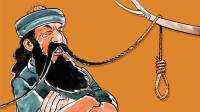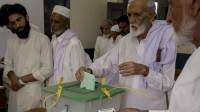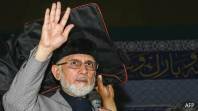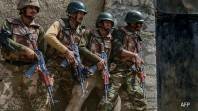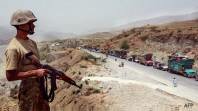It is often believed that blasphemy victims are always from the minority communities. Not always!
A Muslim girl Walaiha, 22, is languishing in Lahore’s Kot Lakhpat (or Central) Jail for two years for allegedly desecrating the Holy Quran, a charge she strongly denies.
Her case, pending in court for 18 months, is being vigorously followed by religious extremist groups more than the complainant, who, on oath, later termed the charge “false and fabricated.”
Following an attack by a handful of extremists and some lawyers at the hearing in Lahore’s Sessions Court in 2013, Punjab Home Department approved the case for jail trial.
Over the years, blasphemy has acquired high sensitivity across Pakistan, with an alarming increase in mob violence. The findings of most cases, till date, show blatant abuse of blasphemy laws. Studies have proven that this law was brought to its present shape through amendments during the military dictator General Ziaul Haq’s rule, mainly to please the conservative clergy in the late 1980s. This has become a tool in the hands of mischievous elements often used to settle personal scores like revenge resulting mostly from cases of property grabbing.
Early morning March 3, 2012 – spring turned autumn for the young Walaiha when her friend Samia Khan appeared in front of her house at 5am and began accusing her of desecrating the Holy Quran.
According to the first police report (FIR), a security guard Abdul Munam, (who later admitted the case was false), heard Ms Khan accusing Walaiha of blasphemy and gathered people in the area including local clerics and police.
A blasphemy case was registered under section 295B of the Pakistan penal code against Walaiha.
Police framed the charge in May 2012. Before the judge, in June 2012, Walaiha denied the charge terming it a fabrication by her friend (Samia Khan) to take revenge after she apprehended her stealing a mobile phone from her house.
One of the complainants Abdul Munam, in his statement before the court, in June 2012, said a local police officer at the time, forced him to sign on the complaint. “There was no such occurrence. Walaiha had not desecrated the Holy Quran. According to our information, the accused and the complainant are friends and they had a dispute over some issue in the recent past,” the statement further reads.
Till date, the local court has rejected her bail plea twice. “The case is at the examination stage,” said Tahir Bashir, advocate, legal consultant to an NGO known as Centre for Legal Aid Assistance and Settlement (CLAAS). He said the complainant has already denied the charges. “We are for the victim’s acquittal.”
In the Rimsha Masih case, Islamabad High Court judge Justice Iqbal Hameed-ur-Rahman (now in the Supreme Court of Pakistan), in his judgment stated there was no evidence in support of the charges against the girl. He, in his 15-page judgment, clearly called for extreme caution in matters related to blasphemy and criticized the practice of fake blasphemy accusations, especially, against non-Muslims.
The plight of Walaiha, who is without any family support, has been brought into the limelight by a friend who is diligently pursuing the case for almost a year. “Her case needs special attention as extremist groups are putting pressure without knowing the facts. She must be granted bail or her case be concluded on priority basis on humanitarian grounds,” said Muhammad Amman Ullah, friend and fiancé of Walaiha, appealing the Supreme Court, federal and provincial authorities to take notice of the case.
Walaiha was born in Multan. Her parents got a divorce when she was still an infant. She hasn’t seen her mother since. The father, a successful businessman, remarried and left Walaiha with her grandmother in Lahore.
Walaiha studied at a reputable school Convent of Jesus and Mary in Multan. She also spent part of her life in Dubai with her uncle and in a private boarding house in Lahore.
After being a rolling stone for some time, she moved into a small house close to a relative’s in the Punjab Housing Society, Lahore -- the place where she was alleged of blasphemy by her close friend Samia Khan in March 2012.
Six months back she was taken to the Punjab Institute of Mental Health, Lahore, for psychological examination, after she attempted suicide. She was advised medical treatment but has not been shifted to the hospital.
The hospital certificate, signed by a board of seven senior doctors, declared her suffering from “Mood disorder”, impulsive personality trait that requires compete psychotherapy.
Dr Nusrat Habib Rana, Executive Director of the PIMH, while recalling the case said, “The girl’s mental state is probably due to the jail environment and needed regular treatment.”
When contacted, Muhammad Arshad, father of the accused said over the phone, “I don’t know any Walaiha. She is not my daughter.”
According to human rights groups not more than seven cases of blasphemy were reported in the Subcontinent from 1927 to 1986. Pakistan saw a significant rise in such cases after a military dictator General Ziaul Haq through an amendment enhanced punishment under this law.
The National Commission for Justice and Peace, working on minority rights claims, in the last 25 years more than 1,058 blasphemy cases were lodged in Pakistan.
Out of them, majority is of Ahmadis and Muslims followed by around 150 Christians, and two dozen Hindus. More than 32 cases have been lodged since 2013 in different parts of Pakistan.
“Walaiha’s case is of acquittal. Apparently, it is a false case. In the light of the prosecution witnesses who have not associated the accused with the occurrence,” said Naeem Shakir, senior advocate of the Supreme Court, who has a track record of arguing before the courts against abuse of this law.
He added, “Such cases are taken up under religious pressures because of the sensitivity of the allegations. The presiding officers do not take judicious initiative even if the case warrants outright dismissal.”
“The law is primarily designed to deliver justice and when many such laws are failing on that account then the administrators need to revisit them so that justice may prevail.
“It has been observed that vigilantes are always on the court premises during such proceeding to pressure judges and justice,” he added.
Come September, Walaiha turns 23. She has spent the best part of her life in solitary confinement, for a crime which she denies having committed.
“Often blasphemy victims are forced to spend time in jail without any cause. Even if they are set free by the court there is no protection for them in society,” said Hina Jillani, a prominent human rights activist and attorney of law.
“In my experience, 99.9 per cent cases of blasphemy are based on settling scores or grudges. Investigative agencies in the judiciary have an important role in doing justice,” Mr. Tahir Bashir, a senior lawyer said.
Last year, a young Christian girl Iqra Nadeem, left Pakistan after drawing criticism for writing a book on blasphemy, an act considered equal to committing blasphemy. The girl was deeply moved by the tragedy of Gojra in 2009. The entire Christian colony was set afire resulting in the burning alive of at least seven Christians of one family who could not escape from their house. The attackers belonged to extremist groups following charges of blasphemy against one member of the community. Her book contains facts and figures related to the issue and highlights misuse of blasphemy law, exploitation of Christians deprived of basic human rights.
The World Council of Churches (WCC) held a discussion in Geneva last year. The conference talked about the cases in which people are victimized in the name of its blasphemy law; its misuse and affect on religious minorities. Intercultural Progressive Organization, a group formed by Pakistani expatriates in the Netherlands, in 2013, held a conference to discuss misunderstandings and confusions between the Muslim and minority and marginalized communities in Pakistan on such issues leading to extreme intolerance and injustice in society.
Life for a life
One of the extraordinarily highlighted cases is of Asia Bibi who has been in jail for four-and-a-half years facing death by hanging for an alleged act of blasphemy. Her appeal for reviewing her death conviction remains pending before court. The case came into the limelight when Asia Bibi was sentenced by a local court in December 2009 for allegedly making derogatory remarks against Prophet Muhammad (PBUH) in the outskirts of Lahore. The case became high profile after the then Punjab Governor Salmaan Taseer visited her in jail soon after her conviction assuring her all help. The governor was shot dead by his own guard in the capital Islamabad.
Unqualified Charge
NOT long ago in Lahore, a highly-qualified Muslim headmaster of a private school of good repute, was arrested on blasphemy charges followed by ransacking of his property and school. The principal’s car and furniture were set ablaze of a school that had been functioning since 1978.
Beat and burn
In 2012, an extremist mob beat-up and burned a ‘deranged’ man alive while in police custody in Bahawalpur, Southern Punjab. He too was accused of blasphemy.
Chilling effect
In May 2013, Lee Ping, the Administration Manager of a Chinese consortium building a hydropower project in the far flung area of Pakistan, was charged of desecrating the Holy Quran. Media reports alleged that the Chinese gentleman threw a copy of the Quran on the ground while moving the belongings of a Pakistani doctor who had refused to vacate his room for relocation. Later, the authorities cleared him of blasphemy charges.
Sickening scenario
Recently, a group of politicians and academicians called for the release of a British man sentenced to death in Pakistan for blasphemy, on medical grounds. In an open letter the group raised concerns about Mohammed Asghar’s health and appealed to the President of Pakistan to intervene. Asghar was arrested in 2010 in Rawalpindi allegedly for claiming ‘prophethood’. According to his family he suffers from mental illness and was treated for paranoid schizophrenia in Edinburgh before returning to Pakistan in 2010.
Minor turns major
Two years ago, Rimsha, a minor Christian girl, was arrested under the blasphemy law, for allegedly desecrating the Holy Quran. Lawyers claimed she was developmentally disabled. A few weeks later, she was granted bail and taken to a safe place in a helicopter.
Rage and ruin
In March 2013, a charged crowd of young Muslims attacked Joseph Colony, a Christian neighbourhood in Lahore, setting fire to more than 170 houses and two small churches after the allegations that a Christian menial worker Sawan Masih had uttered derogatory remarks about Prophet Muhammad (PBUH). Sawan Masih, in a recent reported statement before the court, declared the charges false and fabricated to grab the land of the colony by influential traders.
The writer is a journalist based in Lahore. He tweets @waqargillani



